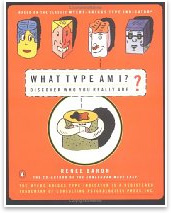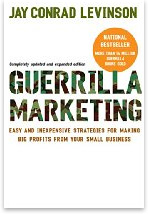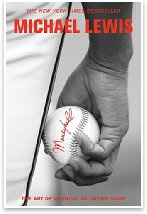Books for a Career Change
by Steven G. Shapiro
Summary: In October 2001, I was a 39-year-old attorney in a law firm representing real estate developers. By the following June, I had completely left law and was a construction superintendent and project manager, pestering drywall workers and cutting my hands on carpet knives.
What prompted my dramatic career change? It started with a double-dog dare. It involved chasing a passion and trusting my instincts. But mostly it involved hard work and initiatives that included mentors, schooling, and books.
While my job change was a leap to chase a dream, the current economic downturn has forced many architects into wholesale career changes. Although there are no guarantees of success, here are three books that offer ideas and wisdom for a mid-career change.
 What Type Am I?: The Myers-Brigg Type Indication Made Easy, by Renee Baron What Type Am I?: The Myers-Brigg Type Indication Made Easy, by Renee Baron
Before charging headfirst into change, I wanted an impartial evaluation of my strengths and weaknesses. My career change was fueled by instinct, but I also paid attention to facts and my basic personality traits.
For me, personality indicator tests are a tricky measure of career suitability, but they can certainly illuminate tendencies. I would not make a career change based solely on a battery of personality indicator tests. On the other hand, I would not make a career change without at least considering my personality indicators.
Although these tests generally require professional administration and interpretation, it is critically important to understand and process the results. Author Renee Baron offers the reader a sense of what the results mean and can help in guiding and planning a course of action following the hints and explanations buried in the raw results.
 Guerrilla Marketing, by Jay Conrad Levinson Guerrilla Marketing, by Jay Conrad Levinson
Any job search involves a fundamental element of personal marketing and sales. For a mid-career change, you can’t expect that a traditional résumé and cover letter will open doors. A typical sweet spot for employers is academic background in the field plus applicable experience.
A mid-career change tosses convention out the window and can knock an employer out of their comfort zone. To sell yourself and get the attention of a recruiter, you need to be armed with personal insight and multiple strategies that reach beyond the elevator sales pitch. Guerrilla Marketing, although aimed at small business, offers ideas and suggestions and should be an initial resource for creating a series of strategies.
 Moneyball, by Michael Lewis Moneyball, by Michael Lewis
This book is about the unconventional approach of the general manager of a professional baseball team, seemingly incongruous with a job search. For my purpose, however, I believe the book offers a detailed look at a non-traditional method of evaluating professional talent. Instead of analyzing and evaluating baseball talent, Moneyball offers a path to evaluate and consider other professional fields. When faced with employers who, by habit, have a traditional method of looking for talent, Moneyball provides insight and offers hope that innovative thinking can be spun into traditional fields.
It is tempting to discount the value of the written word. Somehow, someone who learns by books is less educated than someone who learns by hard knocks. Although there is some merit in such criticism, I believe in the value of ideas and suggestions offered by these books. It is folly to hope that reading a book will directly and quickly lead to success, but these books can offer a game plan.
My career change was more than seven years ago, and I firmly believe that there are do-overs in the world of business. A dramatic change requires creativity, persistence, and education.
I now teach construction management in the architecture school at the University of Maryland. When friends, colleagues, and students ask me about a career change, my first suggestion starts with these three books.
|


 What Type Am I?: The Myers-Brigg Type Indication Made Easy, by Renee Baron
What Type Am I?: The Myers-Brigg Type Indication Made Easy, by Renee Baron Guerrilla Marketing, by Jay Conrad Levinson
Guerrilla Marketing, by Jay Conrad Levinson Moneyball, by Michael Lewis
Moneyball, by Michael Lewis